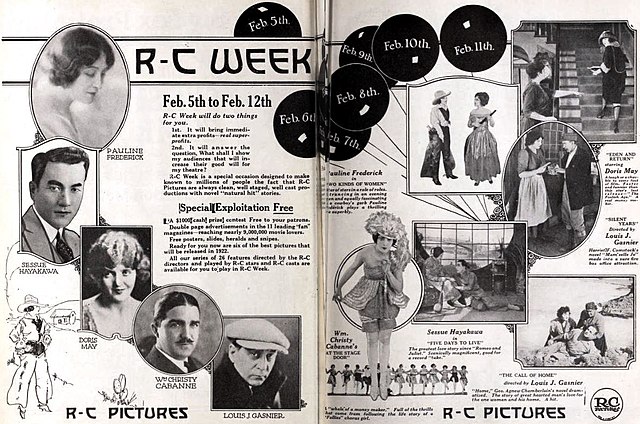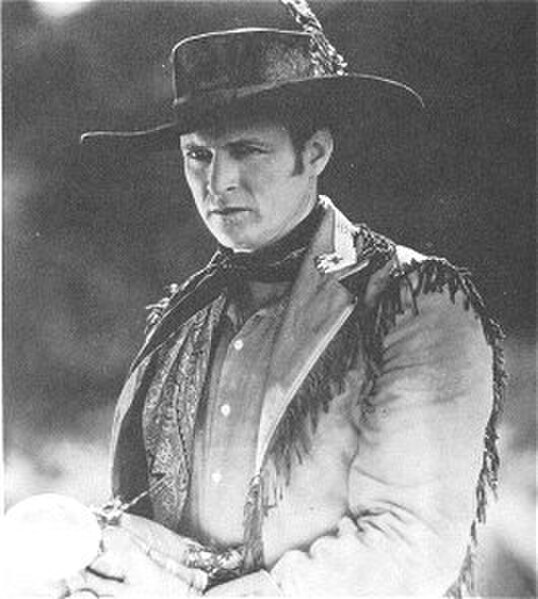The Vermilion Pencil is a 1922 American silent drama film directed by Norman Dawn, and produced and distributed by Robertson–Cole. It is based on the eponymous 1908 novel by Homer Lea. The film stars Japanese actor Sessue Hayakawa in multiple roles, and white actors Ann May, Bessie Love, and Sidney Franklin, all in Asian roles. It is now a lost film.
Lobby card
Omar Whitehead (seated) as Ma Shue, with Sessue Hayakawa as Li Chan
Sessue Hayakawa as Li Chan with Bessie Love as Hyacinth
Thomas Jefferson as Ho Ling
Film Booking Offices of America
Film Booking Offices of America (FBO), registered as FBO Pictures Corp., was an American film studio of the silent era, a midsize producer and distributor of mostly low-budget films. The business began in 1918 as Robertson-Cole, an Anglo-American import-export company. Robertson-Cole began distributing films in the United States that December and opened a Los Angeles production facility in 1920. Late that year, R-C entered into a working relationship with East Coast financier Joseph P. Kennedy. A business reorganization in 1922 led to its assumption of the FBO name, first for all its distribution operations and ultimately for its own productions as well. Through Kennedy, the studio contracted with Western leading man Fred Thomson, who grew by 1925 into one of Hollywood's most popular stars. Thomson was just one of several silent screen cowboys with whom FBO became identified.
December 1921 Robertson-Cole ad, featuring Pauline Frederick and Sessue Hayakawa
Love and Learn (1924) was the tenth installment of The Telephone Girl, Alberta Vaughn's first FBO series of shorts. Not a true serial film, each of its "chapters" was a stand-alone tale.
Publicity photo of Fred Thomson, FBO's biggest box-office draw during the mid-1920s
FBO promotion often involved Joseph Kennedy's self-promotion. This image dominated the opening spread of FBO's massive coming attractions insert in the May 19, 1928, Exhibitors Herald.








